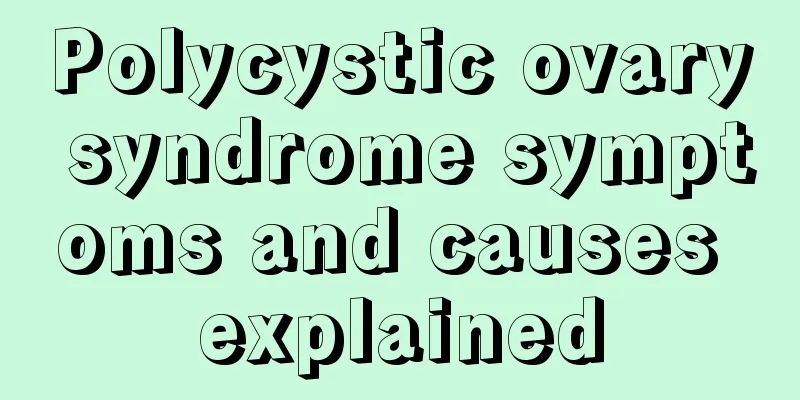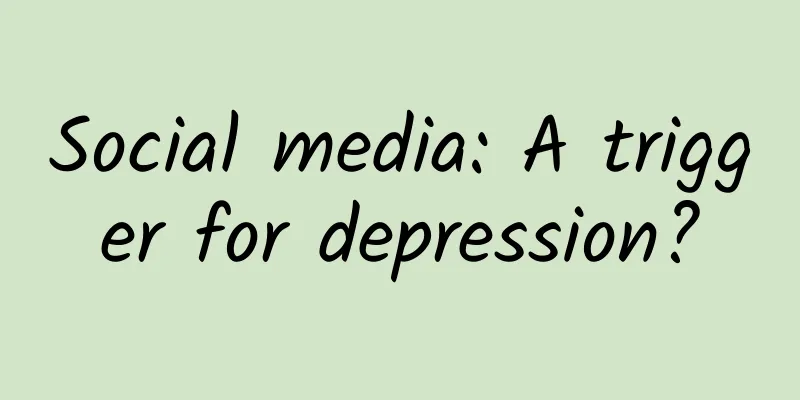What causes nausea and vomiting during confinement?

|
After giving birth, women are very weak and need to recuperate through confinement. If they do not do so, they are likely to suffer from postpartum diseases, which are very harmful to their health. However, some women experience symptoms of nausea and vomiting during the confinement period, but most people do not take it seriously and think it is normal. In fact, it is best to take nausea and vomiting during the confinement period seriously. What causes nausea and vomiting during confinement? 1. Blood pressure problems :High blood pressure can easily cause increased intracranial pressure, which can cause vomiting symptoms.2. Insufficient blood supply to the brain: Due to insufficient blood supply in the body, the body is more prone to fatigue, dizziness or vomiting. 3. Uterine contraction and endocrine system: Postpartum nausea is related to uterine contraction and endocrine system. At this time, be careful not to eat greasy food, and use a straw to drink the soup. 4. Drug effects: Certain drugs taken by pregnant women can stimulate the chemical receptors at the bottom of the fourth ventricle to trigger the vomiting center in the medulla oblongata, which can also cause nausea and vomiting in pregnant women. In addition, the anesthesia time and amount of anesthetics will also affect the parturient and cause vomiting. Generally, the incidence of nausea and vomiting increases with the extension of the operation time. The longer the anesthesia time and the greater the amount of anesthetics, the higher the incidence. What to do if you feel like vomiting during confinement In the case of vomiting during cesarean section, the cause should be analyzed in a timely manner and appropriate nursing measures should be taken. Humane and effective nursing should be adopted before the operation, such as opening an effective intravenous access, changing the maternal position to prevent supine position syndrome, and psychological comfort care. Appropriate care should be provided after intraoperative vomiting, such as reducing or stopping surgical exploration or operation, oxygen inhalation to relieve the stimulation of hypoxia on brain tissue, actively and effectively preventing the occurrence of intraoperative nausea and vomiting, and ensuring the smooth progress of the operation. During the confinement period, every mother should take comprehensive physical and mental care. When any discomfort symptoms occur, in addition to seeking medical treatment in time, she also needs to relax and not be too nervous. Because if postpartum women often experience mental stress and other negative mental states, it will often affect their physical recovery, so they must pay special attention during the confinement period. |
<<: What causes nausea and vomiting during pregnancy?
>>: What are some exercises for women to improve their sexual performance?
Recommend
What are the small bumps next to the nipples?
Nowadays, women's health is really a high-pro...
Why can't pregnant women eat snow swallow?
There are many things that pregnant women should ...
HPV vaccine in Macau
Going to Macau to get vaccinated with the full ra...
Pregnant women's recipes, soups to promote lactation
When a mother is in the breastfeeding period, she...
How to store dried longan in refrigerator or freezer? Is longan the common name for longan?
There are two types of longan, fresh and dried. P...
Are latex pillows suitable for the elderly? What materials are latex pillows made of?
Latex pillows are made from the sap of rubber tre...
Septate uterus, how to operate, method, and what to pay attention to
Here, I would like to share with you some knowled...
How can polycystic ovary syndrome be diagnosed?
Among female diseases, polycystic ovary syndrome ...
How many months of pregnancy do you get stretch marks?
After their first pregnancy, many expectant mothe...
Medical abortion method
Medical abortion is a very common method of abort...
Specific steps of postpartum lactation technique
What are the specific steps of postpartum lactati...
How to determine the balance between breastfeeding supply and demand
Every mother hopes that feeding the baby can achi...
Pictures of dark brown vaginal discharge
I believe that most girls will carefully observe ...
Why does pork have a strong odor? (Maybe it's just the pigs that were slaughtered and sold directly)
...
Are you still crazy about tangerines during the Chinese New Year? Remember these points to avoid getting angry!
During the Chinese New Year, it is inevitable tha...







![[Health and Wellness] When taking Chinese medicine in summer, remember these five points!](/upload/images/67f1f5bf00b46.webp)

